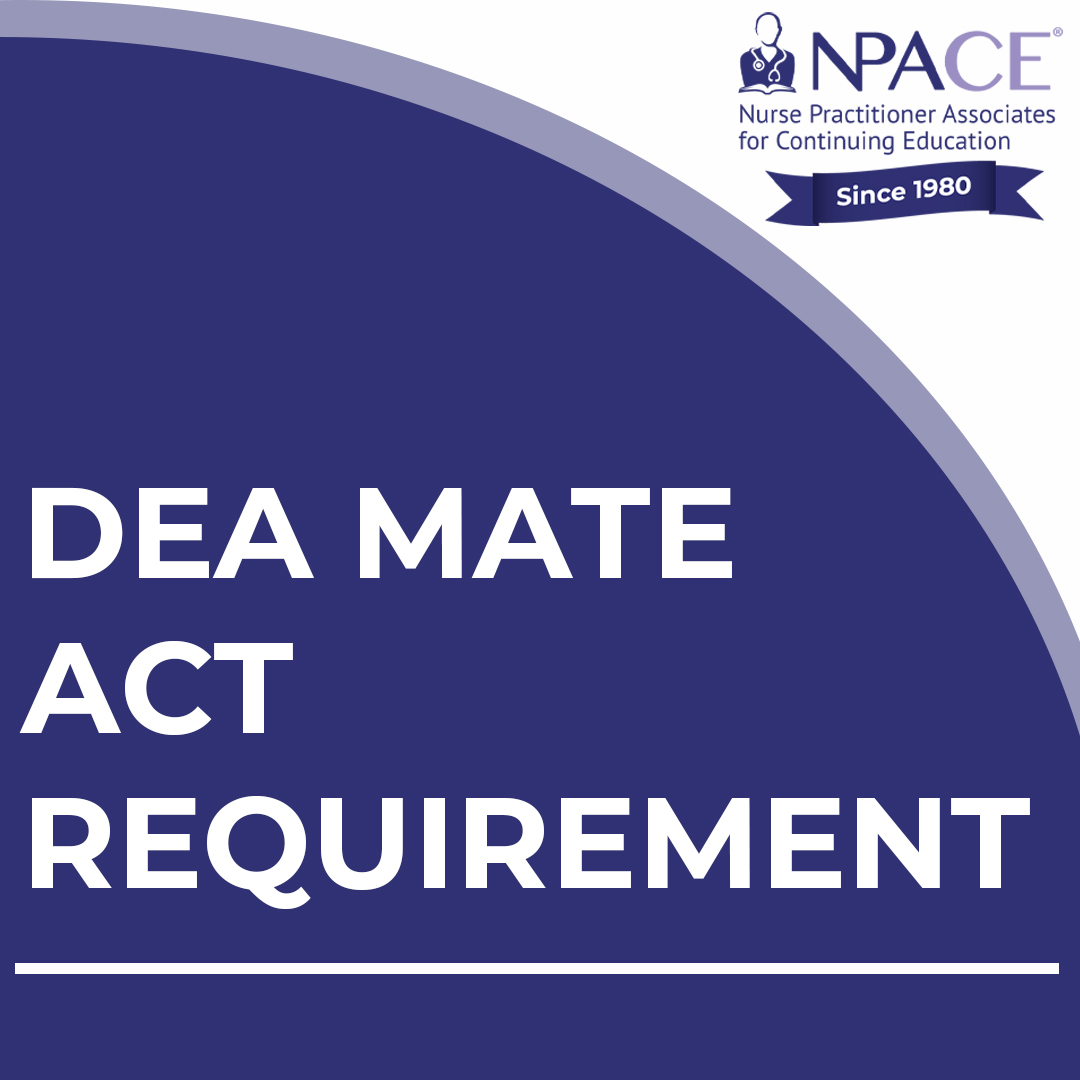
Catalog Advanced Search
221 Results
-
In accordance with the Medication Access and Training Expansion (MATE) Act, beginning June 7, 2023, all providers who are registered with the DEA are required to complete 8 hours of training on the treatment and management of patients with opioid and other substance use disorders. This bundle fully satisfies this one-time requirement. 9.0 CE Credit; 8.5 are Pharmacology | $215.00
-
Register
- User - $215
- More Information
-
Register
-
Includes Credits
During this presentation learners will be engaged by this dynamic speaker on Abdominal trauma. Discussion will include the causes and how to evaluate and how to treat. Abdominal assessment and evaluation will be reviewed in detail. 1.0 CE/CME category 1 (0 Pharmacology) | $27.50
-
Register
- User - $27.50
- More Information
-
Register
-
Includes Credits
Over 80% of veterans receive care in non-VA facilities by providers with no specialized training. Cultural intelligence is foundational in developing the skills and confidence necessary to effectively interact in multicultural environments. It is the conduit to understanding culture, gaining knowledge regarding cultural similarities and differences, and developing strategies and action plans for engaging in cross-cultural settings. There are many cultures and subcultures among Veterans and CQ will provide tools that can assist providers in advancing health equity and health equality, and consequently impact positive health outcomes. During this 1.0 hour education session, learners will be engaged through expert and dynamic presentation with Dr. Angela Richard-Eaglin, DNP, MSN, FNP-BC, CNE, FAANP, CDE. Cultural intelligence is foundational in developing the skills and confidence necessary to effectively interact in multicultural environments and the conduit to understanding culture, gaining knowledge regarding cultural similarities and differences, and developing strategies and action plans for engaging in cross-cultural settings. During this education learners will be presented with veteran culture and subcultures, begin to critically appraise the unique needs of veterans and apply cultural intelligence strategies to advance health equity and health outcomes among Veterans. Further, learners will gain tools to advance health equity and health equality, and impact positive health outcomes for this unique population. | 1.0 credits (0 Pharmacology) | $27.50
-
Register
- User - $27.50
- More Information
-
Register
-
Includes Credits
This talk will discuss the recognition, diagnosis and management of various abdominal emergencies. 1.0 CE/CME category 1 (0 Pharmacology) | $27.50
-
Register
- User - $27.50
- More Information
-
Register
-
As we know, patients are more acutely ill than ever. This 13-course bundle covers caring for patients with sepsis, infective endocarditis, acute respiratory failure, and fractures. Ventilator management, end of life care, and diagnostic testing/imaging are also addressed. Acute Abdominal emergencies and the evaluation of the acute abdomen has been added to this new bundle. This is a must have for any practitioner within the acute setting! 14.0 CE credits; 4.33 are pharmacology | $340.00
-
Register
- User - $340
- More Information
-
Register
-
Includes CreditsFeatured Deal
Merck Grant Funded Program The overall goal of this program is to address the barriers in vaccination uptake and integration. | 1.0 credits (1.0 pharmacology) | $10.00
-
Register
- User - $10
- More Information
-
Register
-
Includes Credits
In this session we will be highlighting the evaluation, treatment options and management of erectile dysfunction and hypogonadism – two of the most common men’s health issues. |1.0 CE/CME category 1 (0.75 Pharmacology) | $30
-
Register
- User - $30
- More Information
-
Register
-
Includes Credits
Adolescent substance use has followed familiar trends for several decades with alcohol, nicotine, and cannabis leading other drugs in popularity. After several years of declining nicotine use, primarily via combustible cigarettes, recent data suggests a resurgence of nicotine use, primarily via e-cigarettes as well as a marked increase in cannabis use, likely corresponding with legalization efforts. Additionally, there has been an increase in hallucinogen use and the dangers of opioid use have heightened due to the rise of illicit fentanyl being brought in from outside the United States. This lecture will review the most recent Monitoring the Future study and discuss implications of adolescent substance use trends on healthcare providers. | 1.50 credits (1.50 Pharmacology) | $40
-
Register
- User - $40
- More Information
-
Register
-
Includes Credits
This is a up to date and in depth session discussing the current guidelines for the adult immunization schedule. Discussing the current evidence supporting the need for immunizations and the numbers of illness in the US. Risks and Benefits of immunizations, and myths surrounding immunizations. Every year updated vaccination schedules are provided to guide immunization practices. Keeping up with these updates is often difficult. This session will review changes and updates to the 2024 adult schedule. | 1.0 CE/CME category 1 credits (1.0 Pharmacology) | Free
-
Register
- User - $35
- More Information
-
Register
-
Includes Credits
This interactive case-based discussion reviews the role of the Acute Care NP in recognizing and managing difficult airways of critically ill and injured patients. Airway assessment tools and positioning strategies are reviewed in detail. A variety of advanced airway tools are thoroughly examined, including pros and cons of each. Additionally, medications to aide in airway management are covered to equip the Acute Care NP knowledge to safely prescribe during the stressful situations of difficult airway management. 1.0 CE/CME category 1 (0.50 Pharmacology) | $30
-
Register
- User - $30
- More Information
-
Register




